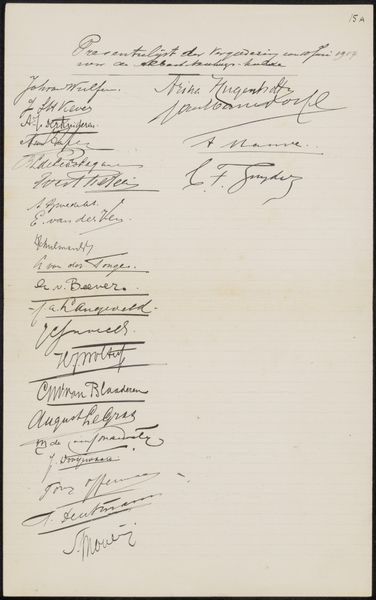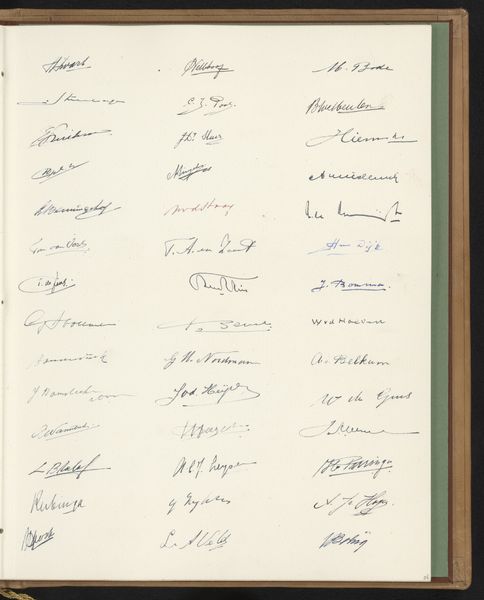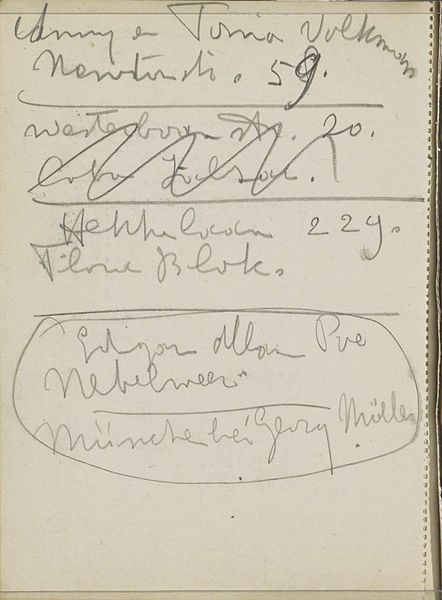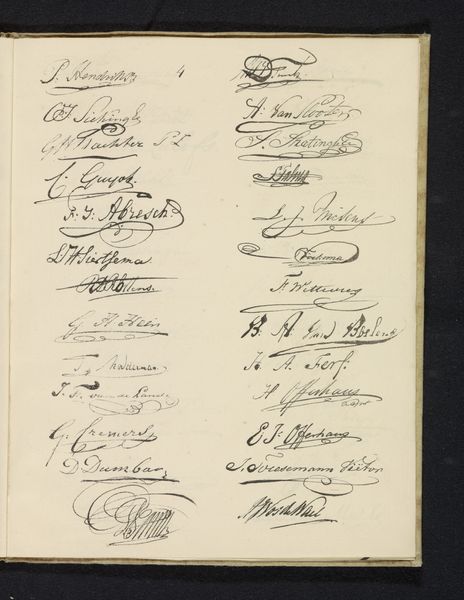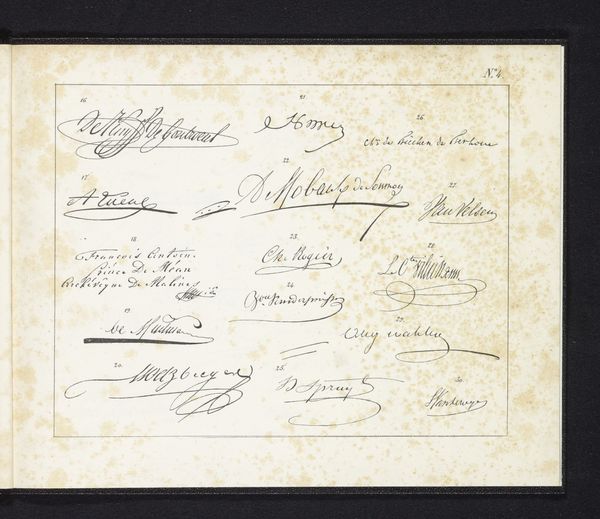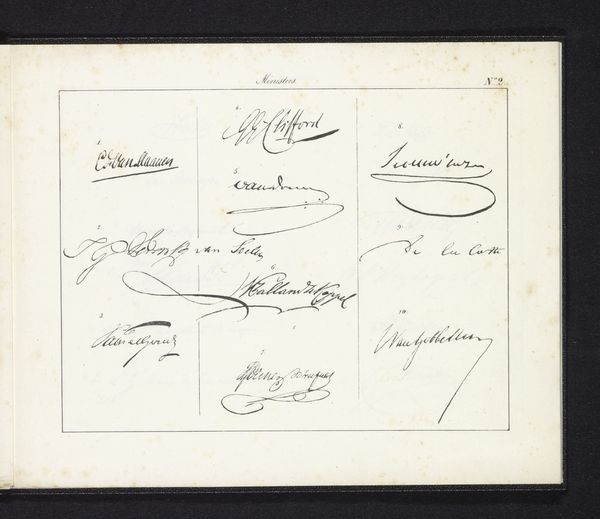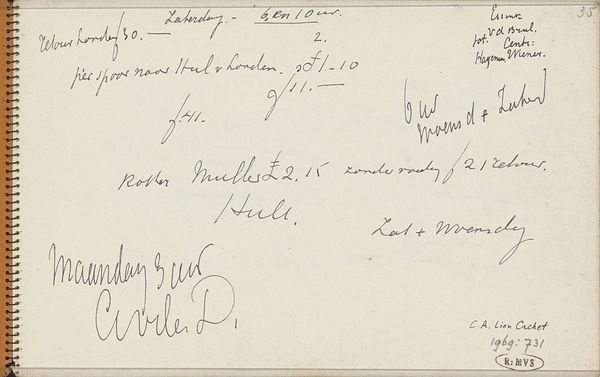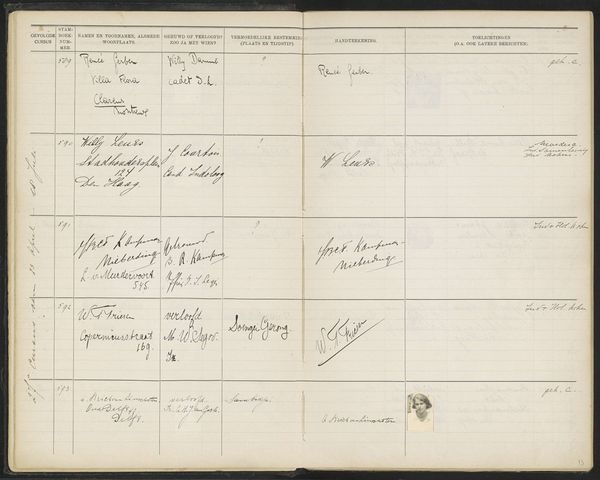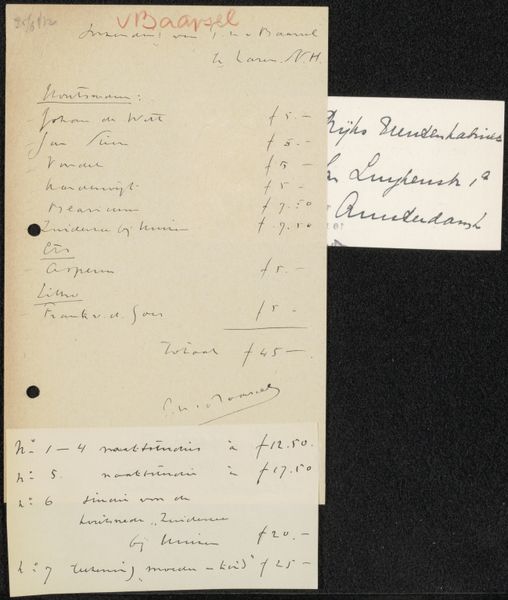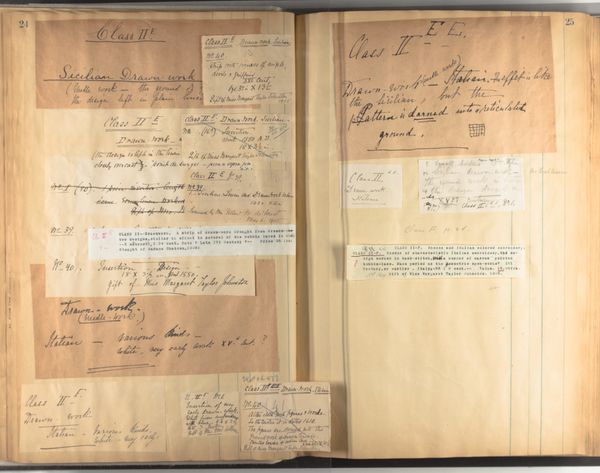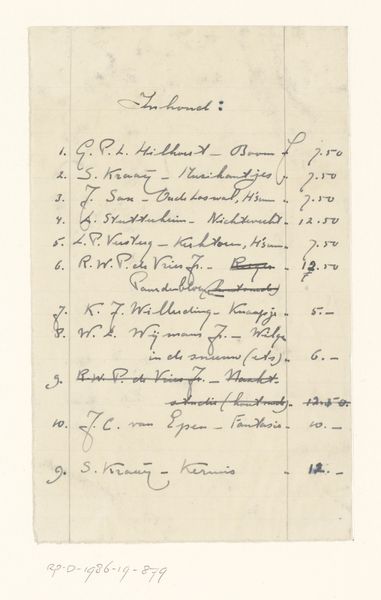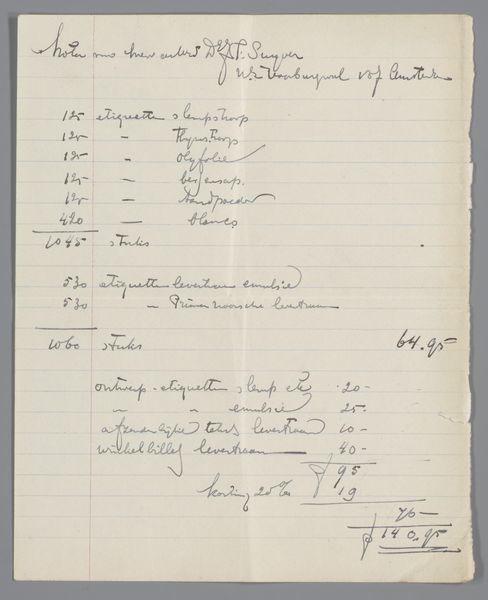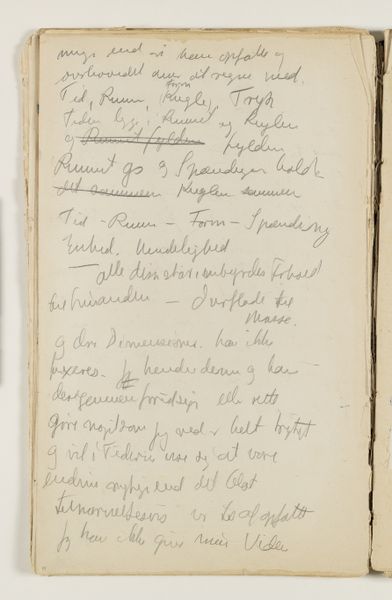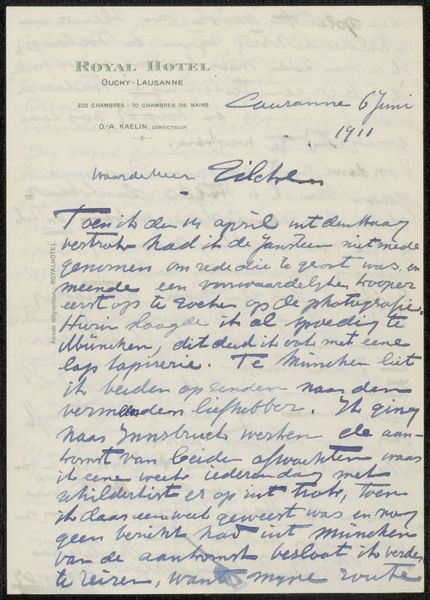
drawing, mixed-media, paper, ink
#
portrait
#
drawing
#
aged paper
#
mixed-media
#
script typography
#
hand-lettering
#
old engraving style
#
hand drawn type
#
paper
#
personal sketchbook
#
ink
#
hand-drawn typeface
#
handwritten font
#
golden font
#
historical font
#
calligraphy
Dimensions: height 360 mm, width 275 mm
Copyright: Rijks Museum: Open Domain
Editor: Here we have "Blad met handtekeningen," which translates to "Sheet with Signatures," likely from 1949, by various artists. It seems to be a collection of signatures in ink on paper, almost like a guestbook page. The handwriting varies quite a bit, giving each signature a unique character. What’s striking to me is how this simple collection transforms a blank page into something almost intimate and historical. What do you see in this piece? Curator: It's fascinating how a seemingly mundane document like this can offer a window into social and artistic circles of the time. The year, possibly 1949, places it in the postwar period. These signatures, were they collected from attendees of an exhibition? Perhaps they signify solidarity or collaboration within an art community rebuilding itself. Does the variety of handwriting hint at different social statuses, educational backgrounds, or even artistic disciplines represented? The way these signatures are arranged—their density, their proximity—might suggest a visual hierarchy or, conversely, a spirit of equality. Editor: That's an interesting point about equality. I hadn’t considered that the arrangement might be a statement in itself. I was just focused on the individual signatures. Curator: Right. And considering this as a historical document, think about what's *not* here. Are there any notable absences? Any patterns in the types of names or signatures we *don't* see? Those absences can tell just as powerful a story about the cultural landscape of the time. What function did this collection of signatures serve at the time and what purposes can it serve now? Editor: It sounds like this single page, initially perceived as something straightforward, is dense with possible narratives. It challenges our perspective on how to contextualize such historical artefacts. Curator: Exactly. These "signatures," a visual testament of the art world, require us to carefully analyze how socio-political factors, or the public’s intention with art, create more meaning. We uncover forgotten, ignored, or actively suppressed public aspects.
Comments
No comments
Be the first to comment and join the conversation on the ultimate creative platform.
